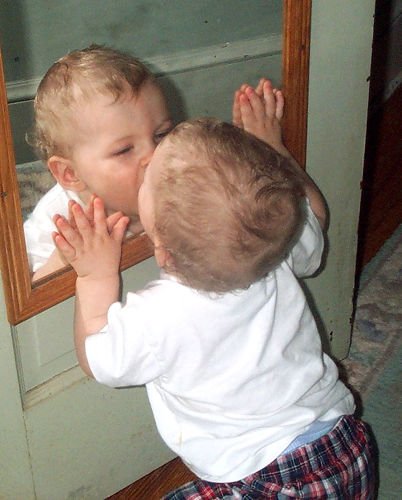Your protagonist is up for a job interview.
The position: adventure guide.
The hiring company: your reader.
He’s only got a few paragraphs to make that first impression and convince the reader to take him on for the next 200 pages. He’s got a resume full of great skills like sword-fighting and cat-saving, with a detailed peril history, but your reader isn’t really sure what qualities she’s looking for. Exposition isn’t going to help. She wants to see proof he’ll take her on a wild adventure, and that it’ll be fun, moving, thought-provoking, or all three.
It’s a working interview.
And this working interview—also known as his grand entrance into the story—must be three things:
- Memorable. It should be strange, clever, charming, funny, or disturbing. Something that makes the reader wake up and take notice, even if just to figure out what the heck he’s up to.
- Insightful. It should show something unique about the character. Elements of his appearance, his actions, and anything he is carrying can all illustrate the kind of person he is, and hint at his background. This can be as simple as mentioning his bum leg, and how he tries to hide it when he meets a pretty girl. Or maybe how he scares his grandkids by driving a fork into it.
- Relevant. It should relate to – or introduce – the problem that leads to the plot. The moment normal life gets turned upside down, whether the hero realizes it yet or not. Like Luke Skywalker buying a couple of used droids to help on the farm.
Think of great hero (or villain) entrances in movies and TV, where it’s harder for writers to sneak in exposition:
Pirates of the Caribbean
Captain Jack Sparrow standing on the topcastle of a sinking boat, one hand on the mast as he rides smoothly into harbor, past crowds of astonished eyes, to reach the dock just in time and stride nonchalantly on.
The Hitchhiker’s Guide to the Galaxy
Arthur Dent in pajamas lying in front of a bulldozer he’s just been informed wants to knock down his house to make way for a bypass. Moments later, a friend arrives informing him he’s got to forget the bulldozer because the Earth is about to be destroyed to make way for a hyperspace bypass.
Doctor Who (new series)
Rose is incredulous to find herself chased by a gang of animated mannequins. The first sign we see of the Doctor is his hand grabbing hers. Rose looks up to see a cheeky grin framed by large, goofy ears. “Run!” he says.
Mary Poppins
Flying in by umbrella. Looking exactly like the imaginary nanny Jane and Michael described. Pulling several large items out of an average-sized carpet bag (evidently it is bigger on the inside).
Star Wars IV
Darth Vader stepping through the hatch to board the rebel ship, surveying the dead with approval, the sound of the soulless breath clicking in and out of his metal lungs.
–
What do these entrances say about the characters? What do they say about the adventure to come?
–





